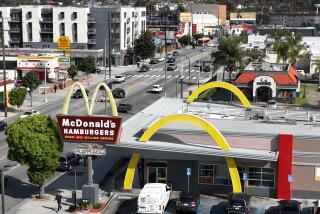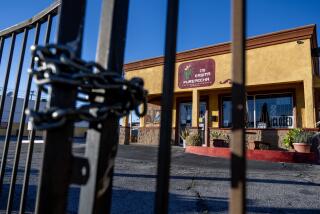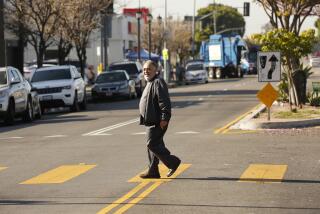The food fight over food trucks
The intensity of new-wave food truck craze caught the city of Los Angeles off-guard. For the last two years there has been much, often heated, discussion over how the trucks should be regulated. Even among members of the city council there is debate over how to deal with issues that have arisen in conjunction with the trucks, including where the trucks can park, for how long and whether they should be allowed to use meters.
The food trucks now have their own representation in the form of the Southern California Mobile Food Vendors Assn. Headed by Matt Geller, it was founded in January 2010, about six months before City Councilman Tom LaBonge introduced two motions that would limit the trucks’ freedom to park along main city streets by banning them from using meters.
Geller has worked to protect the trucks’ freedom to park at meters, to the chagrin of some food truck operators who say he is making things worse by fighting the city in a high-profile way.
LaBonge’s motions have yet to make it to the council floor, but he says they could by this summer. He recently drove a reporter to the section of mid-Wilshire (a part of his district) that is considered one of the most contentious areas in the food truck battle. Home to a hive of office workers and a number of long-established brick-and-mortar restaurants, the area often draws up to a dozen food trucks, which angers restaurant owners.
“Food trucks should be regulated like taxis, so only a defined amount can be on the streets,” says LaBonge, pointing out a long row of trucks including Bool and Rebel Bite. In a large group, the trucks are a hazard to public safety, he says, blocking views of traffic lights and distracting drivers.
His latest plan is to request two 180-day demonstration areas for testing the effectiveness of the regulations that he says would best serve the city and the trucks. One test area would be Wilshire Boulevard, between Fairfax and Highland avenues; the other (with City Councilman Eric Garcetti’s approval) on Hollywood Boulevard, between Gower Street and LaBrea Avenue. There LaBonge would establish well-spaced-out commercial loading zones off the main boulevards, where the trucks could park for a limited period of time, such as between 11 a.m. and 2 p.m. Because this is just a proposed pilot program, the exact details have yet to be sorted out, but the trucks would also pay a fee for the right to park in these zones.
Geller says that this type of regulation is too much. He says that with 88 cities in L.A. County — each with its own municipal codes and rules regulating the trucks — the food truck owners have more than enough fees to pay and rules to keep track of.
More to Read
Eat your way across L.A.
Get our weekly Tasting Notes newsletter for reviews, news and more.
You may occasionally receive promotional content from the Los Angeles Times.







